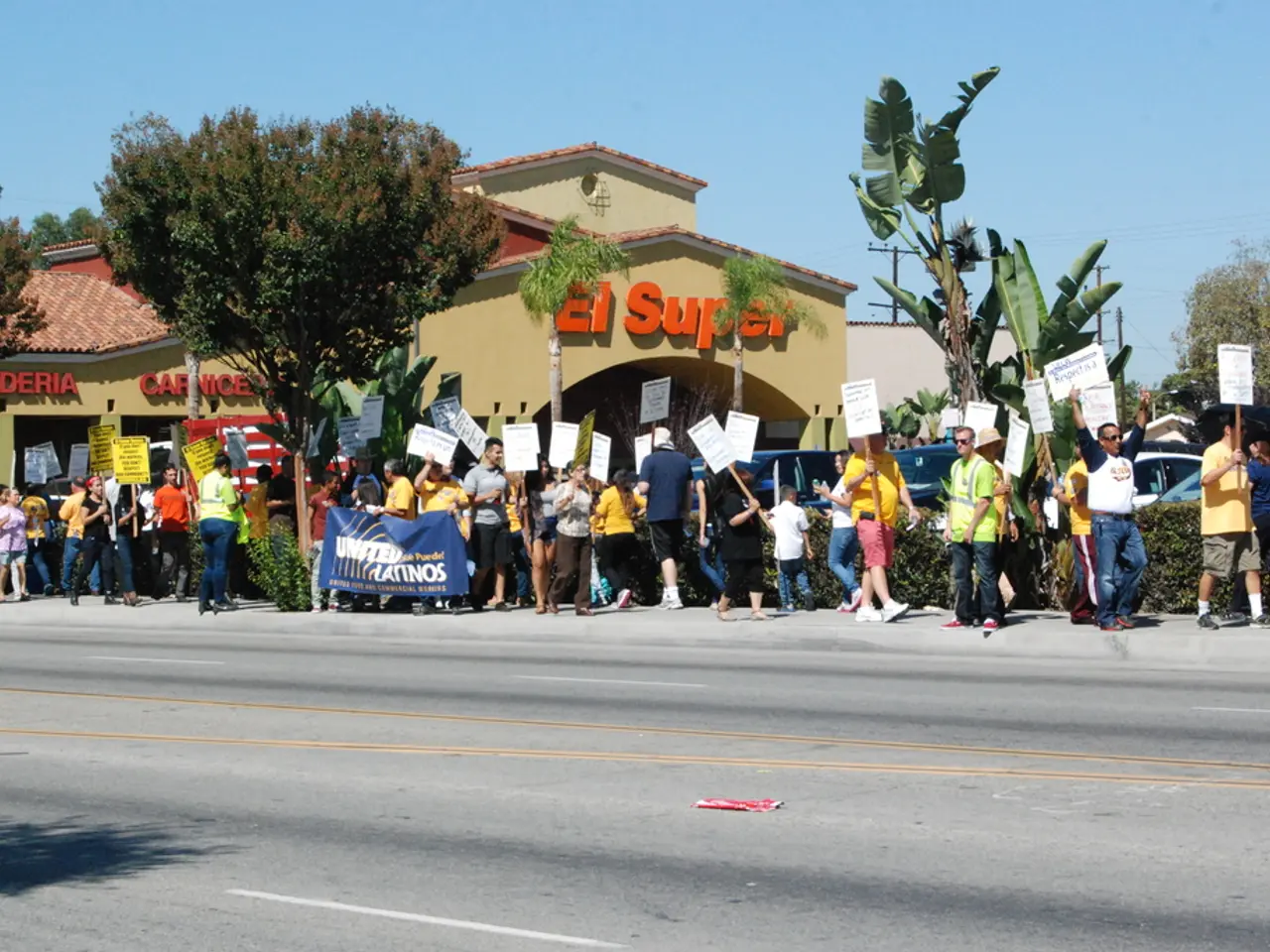Discussion on Imposing a Tax on Electricity in the Coalition Committee
In the heart of Berlin, the coalition committee, the central planning body of the alliance between CDU, CSU, and SPD, convened for its second meeting since the new German government took office. The committee, which consists of ten men and only one woman, is under pressure to address the contentious issue of expanding electricity tax reductions, a decision that could have significant financial implications.
The original plan, supported by CDU and SPD, aimed to lower electricity taxes for citizens. However, Finance Minister Lars Klingbeil did not allocate the necessary funds, leading to only manufacturing and agricultural sectors benefiting from the tax cuts in 2026. This decision has sparked controversy and frustration within the coalition, prompting CDU to propose a deal that would fund a broader tax relief by cutting subsidies for heat pumps.
Expanding the electricity tax relief to households is estimated to cost around €5.4 billion, a substantial budgetary challenge. The heat pump subsidy program, costing about €16 billion in 2026, is considered a potential funding source to enable the tax cut. If reduced, it could free up resources to support lowering electricity taxes more universally.
The leaders of the Union and SPD, including the new SPD leader, Bärbel Bas, who made her debut in the committee, are meeting at the Chancellery to discuss the possibility of expanding electricity tax reduction to private households and all companies. The rising electricity costs and lack of household relief risk political fallout and increased public dissatisfaction.
The committee's meetings aim to achieve consensus between the coalition partners, especially in times of conflict. However, the gender imbalance in the committee has drawn criticism, going against what was agreed in the coalition agreement.
As discussions continue into the late evening, optimism remains. CDU's leader, Merz, expressed his belief that if they can do more for private households, they will do it. The committee's decisions will not only impact Germany's energy and economic policies but also the political landscape, as the government tries to balance supporting consumers, industry competitiveness, and fiscal responsibility.
The Union and SPD leadership are deliberating over the possibility of expanding electricity tax reductions to private households and all industries, aiming to alleviate the rising costs that risk political fallout and increased public dissatisfaction. To fund this expansion, the heat pump subsidy program, costing €16 billion in 2026, could potentially be reduced, freeing up resources for more universal tax relief, a move that could have significant implications for the finance and energy sectors.




